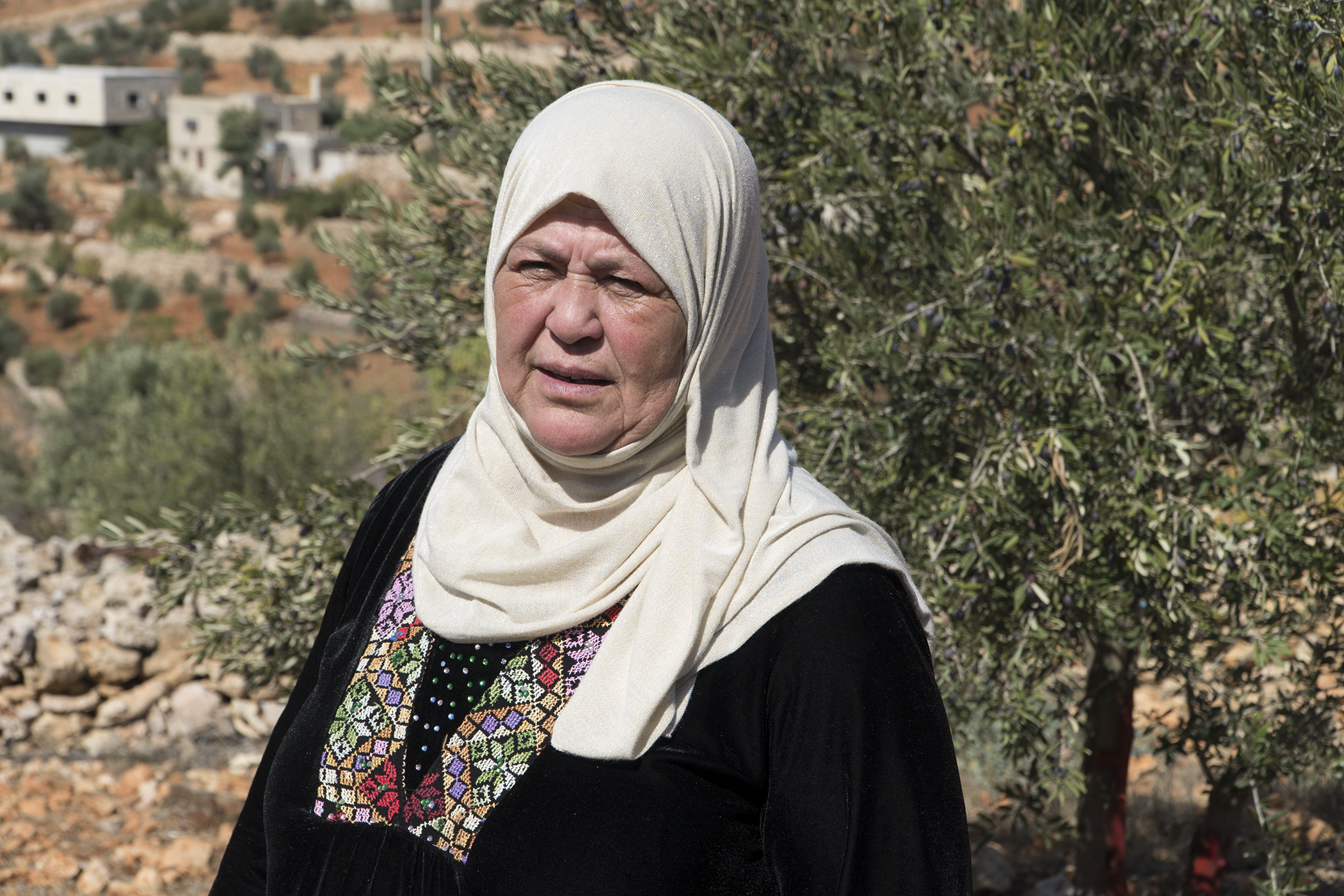Fatima may seem an unlikely Jordanian agricultural leader. At only 17 years old she was married and moved from the urban center of Amman to a rural farming village in Ajloun. While she didn’t have the opportunity to pursue an education growing up in the city, she fully committed herself to learning all she could about agriculture to help manage her new family’s 34-dunum farm. “In the beginning, I faced many difficulties and challenges in my new environment; city life is so different from the simple village life that depends on agriculture,” Fatima said. “I tried to adapt to my new life and my new society.”
Now 57 and a mother of six, Fatima is a lead farmer in NEF’s Olive Oil Without Borders (OOWB) project, which expanded to Jordan in 2017. Even though she has worked exclusively in Jordan’s agricultural sector for forty years, she told NEF that she has benefitted greatly from the information in NEF’s cross-border trainings and has shared her knowledge with other Jordanian farmers.
Similar to olive farmers in Israel and the West Bank, farmers in Jordan face challenges with olive diseases, water shortages, and ensuring the production of quality crops and oil. Fatima and her family specifically face many obstacles such as a lack of updated agricultural equipment, changing climate conditions, and a general lack of support for the agricultural sector in Jordan. Through the OOWB project, Fatima and others have been able to benefit from the knowledge of other olive farmers across the region. These interactions have reaffirmed her commitment to working together with her community to overcome some of these issues and improve their olive oil production.
With her dedication to this work and to teaching others, Fatima developed a Farmer Field School on her land with the help of NEF where she shares improved techniques for olive farming.
“Now, after my participation in this project, I’m even more interested in taking care of our farm and helping farmers in my village through what I have learned.”
From the experience, Fatima has become a leader in her community. She shared her appreciation for the opportunities OOWB has presented for her personally and professionally, saying, “I received a lot of training to develop myself and increase my knowledge about agriculture and how to improve the quantity and quality of olive oil produced on my farm. I participated in all the trainings and activities organized by the project team, acquiring many experiences and skills, and increasing my knowledge. Because of this, I also felt more confident to start passing this information on and training farmers around me.”
As one example of how the project has transformed her confidence, Fatima shared, “During one training, I was teaching farmers how to make fly traps when my husband, who was participating, tried to suggest another method that was not correct. I stuck to what I knew and proved I was correct in the practical application. Now, my husband consults me on all agricultural matters and trusts my expertise!”
OOWB, implemented by the Near East Foundation and funded by the United States Agency for International Development, works to promote long-term, large-scale collaboration in the olive sector through cross-border initiatives and trade agreements that increase income, production yields, and regional trade. These efforts have so far brought together 5,000 Jordanian, Palestinian, and Israeli farmers, mill operators, producers, and other agricultural stakeholders.



